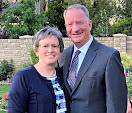"Just keep writing those memories…"
Darrel Hammon
“Do you remember when….?”
For most of us, that line gets us to thinking about times past, both the bad and good times. Normally, the good times usually rise to the surface because most of us like to remember the good and forget about the bad. Memories are good for the soul because they help us understand who we are and the progress we have made in this life, reflect what we could have done better, understand why we did something, and re-create the old feelings of euphoria when we experienced doing what we did.
I love to listen to people tell stories of what they used to do. People who know me, know that I will ask them one simple question: “So, have you written down that experience somewhere?”
For example, just today, we had our septic tank emptied. The person doing the job was telling me about his wife’s grandmother who has wonderful stories. I asked him if he had written them down. He told me that he just remembers them. Our conversation went something like this:
I said, “You should write those down before you forget them.”
“Yeah, I know,” he answered sheepishly.
The challenge is this: We will forget parts of the stories or the entire stories themselves over time. That’s just the fact of life, of growing older, of stuffing our minds with other things, many of them irrelevant. Then, they will disappear into that great abyss we call our “forgetful brain.” Those stories are there somewhere, meshed with the several terabytes of stuff we have floating around inside our brains, but we cannot connect to them at this very moment.
So here are some ideas to help jog those memories so you can write them down with some semblance of accuracy:
Begin by thinking of your life—The first thing to do is begin thinking about and recording those memories. One of the things I did early on was to begin a list of memories. I simply listed “first grade” and then wrote a sentence or two about each experience I could remember about first grade. Then, I went to second grade, and then third, and then onto each grade. I would write just a snippet. Today, with everyone having a video camera, you may want to review those photos or those old photos you have stashed somewhere in the basement. I realize that many of you went through the “scrap book” stage and have several three-ring binders seating on your shelves. Go through those and let the pictures “talk to you” and write down what they say.
Find the snippets in the stories—Amazingly, when you go back to the snippets and really think about that experience, it is amazing how many details resurface. What I like to do is try to “re-immerse” myself into the experience and try to feel my way through, trying to remember the sights, smells, conversation, any details that will trigger other details. I then just pen the memories as they come, trying to capture as many as I can without worrying about spelling, punctuation, grammar, etc. Just get the stuff flopped out onto the page.
Turn the details into stories—Once you have all of the details, begin writing the story. In essence, what you are doing is “fleshing out,” or putting some meat on, those sketchy details. What you will discover is the details will mesh quite nicely. The good part is that often some of the details you may have skipped or didn’t come to the surface during your “thinking time,” will come back because of the writing that you do.
Edit your draft—Now, that you have the story on paper, begin the editing process and fixing the challenges that may have occurred. Be sure to insert the conversation as you remember it. Conversation is such a good thing. Just remember that every speaker gets a new paragraph, no matter how short or long the conversation. Today, with word processing, you can really put the words on the page. If you are not into word processing, then write them long hand.
Share your story—I am not saying that you have publish the story although there are plenty of outlets that may publish it. The perfect place to publish is in your own “book of memories.” Plus, you send the story to your family and friends. If it specifically about a certain friend or family member, send them a copy if you feel comfortable doing it. Today, most everyone has a blog. You can publish your stories on your personal blog. They are easy to set up and get going, and the best part is that they are free. Try www.blogspot.com. That is where my blog is.
Bask in the knowledge that this memory will not be forgotten—Now, that you have carefully recorded the memory and published it somewhere, you can be assured that this memory will not be forgotten. Compliment yourself for getting this story completed, knowing full well that you have more to do.
Start another story—One down, a zillion more to go. The task of writing all of your memories can be totally and completely overwhelming. But I believe if you do it one story at a time, it will be more manageable. Plus, you will be surprised after a month or so—or even longer, depending how fast you write down your memories—how many you have completed. And they just build from there.
Finally—I am not done with all of my memories—yet—nor will I ever be finished. I suspect several still lurk somewhere between the various recesses of my brain. I just need to coax them out into the open. Plus, more and more happens each and every day. That’s why daily journal writing is such a good idea. The best part of the journey is that you will never be done, and you will never run out of memories because you are experiencing new ones every single day. The key is to follow Dory’s simple philosophy in Finding Nemo: Instead of saying “Just keep swimming….Just keep swimming…,” just repeat, “Just keep writing….Just keep writing….”
Good luck!
Tuesday, March 15, 2011
Just keep writing those memories…
Labels:
Dory,
Finding Nemo,
Hammon,
journals,
letter writing,
memories
Subscribe to:
Post Comments (Atom)










No comments:
Post a Comment